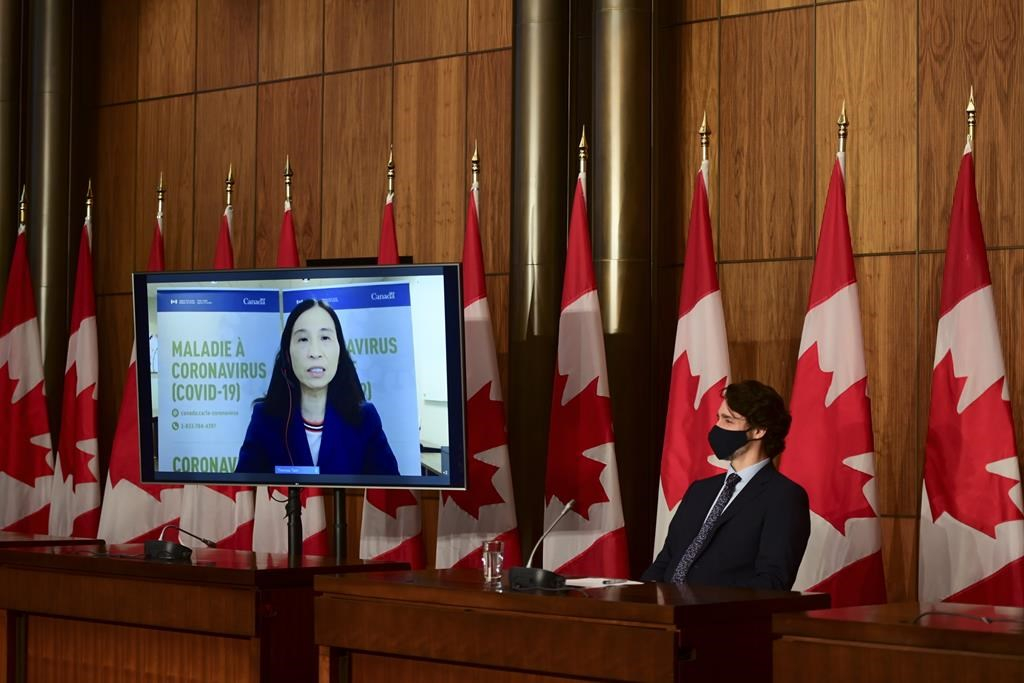Support strong Canadian climate journalism for 2025
Canada's chief public health officer is confident people will be able to cast ballots safely in an expected federal election, despite a fourth wave of COVID-19 fuelled by the highly contagious Delta variant.
Dr. Theresa Tam says safety protocols can be put in place to minimize the risk of voting in person, as has been done in recent provincial elections.
She says Canada's high rate of vaccinations also provides additional protection.
Tam notes that anyone who feels at risk can always opt to vote by mail instead.
Prime Minister Justin Trudeau is widely expected to pull the plug on his minority Liberal government this month for an election in mid to late September.
Trudeau continued Thursday to dodge questions about an imminent election call, insisting his government is focused on the pandemic and urging all Canadians to get vaccinated.
"There's definitely ways to vote safely," Tam said during a pandemic briefing Thursday.
"Certainly, if there's a mail-in option, people can take advantage of that … I think it's great to have an option but in-person voting can be done safely."
Tam's deputy, Dr. Howard Njoo, said it will be important for voters and politicians alike to follow local and provincial public health protocols during the campaign, particularly as they travel across the country.
"For me, with all the public measures that are in place, it shouldn't be an issue if we want to vote in person or use other means to vote," Njoo said in French.
"But the most important thing if there is to be an election will be to vote."
Chief electoral officer Stephane Perrault told The Canadian Press earlier this week that Elections Canada is ready to conduct an election that will be safe and produce trustworthy results, despite ongoing challenges of the pandemic.
The agency has stocked up on face masks, sanitizers, single-use pencils and plexiglass partitions to ensure the safety of voters and poll workers.
It is also braced to issue as many as five million mail-in ballots — a dramatic increase over the 2019 election when fewer than 50,000 Canadians chose to vote by mail.
Perrault warned that Canadians will not be able to learn final results on election night, as they're accustomed to doing.
That's because mail-in ballots will not be counted until the day after the election, in order to allow them to be received right up to the last minute before polls close and to give election officials time subsequently to carefully conduct checks to ensure no one who voted by mail also cast a ballot in person.
In a worst-case scenario, Perrault said it could take two to five days to complete the mail-in ballot count.
Depending on the number of mail-in ballots, that could mean Canadians will have to wait a day or more to learn the winners in close-fought ridings or even to find out which party will form government.
This report by The Canadian Press was first published Aug. 5, 2021.





Comments